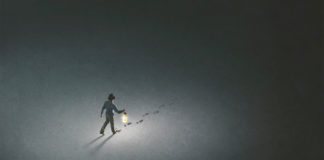Becoming truth tellers on post-truth social media
American President Joe Biden was obviously upset with Meta when, in mid 2021, he accused it of “killing people” for its seeming tolerance of so much Covid-19 misinformation. He backed down a little by clarifying that he wasn’t blaming Facebook itself, but the “bad information” they allowed on the site. Other have argued we live in a post-truth world.
How to be a good listener
The portrait of a good listener contains skills that are formed over time, through an honest interaction with others, motivated by the desire to understand and help them.
The applications and pitfalls of critical thinking
Critical thinking is not a cure-all, but it proves very useful in dealing with, clarifying, and solving some decision-making problems, as well as the thought and belief disputes which occupy our minds.
Argumentum Ad Hominem or how you attack yourself when attacking others
In an argumentative discussion each party involved must be able to express their point of view without constraints, discrimination or other interferences. This is, in fact, an important prerequisite for the effort to overcome differences of opinion. In practice however, often things are far from this ideal. Not only do interlocutors not respect each other’s right to free speech, but they also resort...
The path of renewal: from words that “ignite the wheel of life” to those that guard the soul
“The words of the mouth are deep waters, but the fountain of wisdom is a rushing stream” (Proverbs 18:4).
An impossible inventory of the most widespread fake news about COVID-19
The epidemic of false information in this worldwide pandemic is even more infectious than the virus itself. Fortunately, there is a vaccine for this epidemic of fake news: quality information and information filters. However, not everyone has been vaccinated. Here is an immunization effort.
How to survive the loss of a child
“I knew her face better than my own. Still, I had to say goodbye. I had to walk away. That’s what you do when someone dies. Except this wasn’t just someone. It was Ana, my sweet girl.”
What (not) to say when apologising
"I was wrong. I'm sorry"—these words can have a magical effect on a struggling relationship. But if we fail to show empathy, the apology will sound fake or hurt the offended person even more.



















